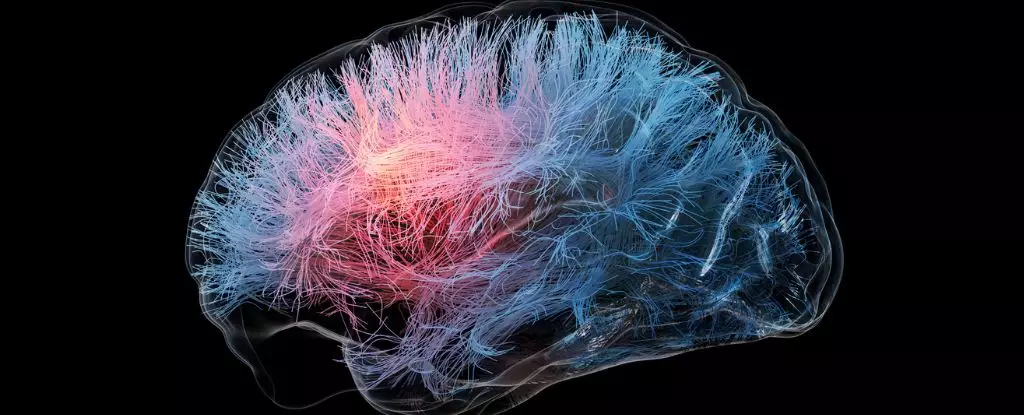The recent advancements in Alzheimer’s treatment herald a new dawn for patients grappling with this devastating disease. Medications like lecanemab offer a glimmer of hope, potentially prolonging independence even for years. However, a stark reality shines through the optimistic veneer: the efficacy of these groundbreaking drugs may dramatically favor one gender over another. While men appear to enjoy significant benefits from lecanemab, women face an alarming disparity. The core of this unsettling issue lies in how clinical trials have historically disregarded the influence of sex on treatment outcomes. The implications of such oversight not only complicate the treatment landscape but underscore an urgent call for a more equitable approach in Alzheimer’s research.
Clinical Findings: Promising Yet Troubling
The clinical data surrounding lecanemab’s efficacy is both illuminating and disheartening. According to an initial phase 3 trial, the treatment managed to slow cognitive decline by up to 27% compared to a placebo. Yet, when the results are dissected through a gendered lens, a concerning 31% gap emerges in effectiveness. Male participants showcased promising results, with significant cognitive decline reduction, while female participants reported only nominal improvements. These figures aren’t just numbers—they represent lives impacted by the broad strokes of clinical science. In light of these results, it’s baffling that two-thirds of Alzheimer’s patients are women, yet current drug trials often center a male experience.
This discrepancy highlights a grave oversight, as taking the gender-specific responses into account could redefine how these drugs are developed and subsequently administered. As neurologists like Marina Lynch from Trinity College eloquently argue, the scientific community must prioritize understanding sex-related differences in clinical outcomes. If we continue to overlook these differences, we risk leaving countless women with inadequate or ineffective treatments.
Reassessing the Drug Development Paradigm
Current medical research is at a crossroads where addressing the gender imbalance in clinical studies is imperative. The relatively low representation of women in such trials—barely 5% of neuroscience studies examined sex differences as of 2019—has led to skewed results that propagate ineffective treatments for half the population. The repercussions of this oversight are potentially catastrophic for women’s health.
Furthermore, the complexities of Alzheimer’s disease create an urgent necessity for nuanced understanding. The existence of amyloid plaques as a primary cause has been challenged, suggesting that perhaps these markers alone do not offer a comprehensive explanation for cognitive decline. Ongoing investigations reveal that a significant proportion of diagnosed Alzheimer’s patients may not even exhibit these plaques postmortem. As the narrative evolves, the need for a more tailored approach to treatment grows increasingly clear; a one-size-fits-all mantra is patently inadequate.
While lecanemab is a beacon of hope, a shift in perspective is necessary. Drug developers should be open to examining trial data through a more equitable lens—one that includes the interplay of hormones, genetics, and numerous other factors that may affect treatment efficacy differently for men and women.
The Call for a Gender-Neutral Future in Drug Trials
Emerging insights are pointing towards a critical juncture in Alzheimer’s research and treatment protocol formulation. The larger scientific community must not simply acknowledge the disparity in drug efficacy based on gender but actively combat it. Addressing this challenge is not just about compliance—it is about innovation, empathy, and a moral obligation to protect the health of all patients.
To effect meaningful change, collaboration among neuroscientists, psychologists, and psychiatrists is essential. Their collective efforts can unravel the convoluted science behind Alzheimer’s pathology and offer tailored treatments. As we endeavor on this path, recognizing the intricacies unique to female brains in Alzheimer’s research shouldn’t just be a recommendation; it should be a non-negotiable standard.
By prioritizing gender-sensitive research methodologies, we can illuminate how female brains age and respond to treatment. Until the scientific community chooses to embrace this integral aspect of research, the burden of Alzheimer’s inequity will continue to weigh heavily on women, and the promise of innovative treatments will remain unevenly distributed.
In an era where progress in medicine has never been more pronounced, we must not ignore the fundamental need for balance and parity. The future of Alzheimer’s treatment hinges on our ability to confront gender biases head-on and pave the way for an inclusive healthcare landscape that prioritizes the wellbeing of all patients, irrespective of gender.

